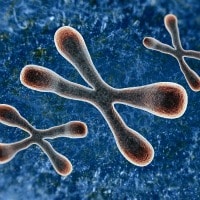Telomeres are the end caps of chromosomes, protecting the DNA complexes from deterioration during cell division. Telomere shortening is considered a marker of cellular aging, and prematurely shortened telomeres have been linked to increased risk of cancers, heart disease, dementia and death.David C. Zappulla, from Johns Hopkins University (Maryland, USA), and colleagues have found molecular evidence of how a biochemical process controls the lengths of protective chromosome tips, a potentially significant step in ultimately understanding cancer growth and aging. The researchers have observed how in baker’s yeast cells, two proteins – Ku and Sir4 – work together to usher telomerase – a key enzyme to the chromosome tip (telomere), to restore its length. The team is hopeful that their findings concerning the workings of this newly identified telomerase-regulating protein network may advance the understanding of both aging and the process of cancer – in which telomerase plays an important role.
Novel Protein Network Contributes to Aging Process
Hass EP, Zappulla DC. “The Ku subunit of telomerase binds Sir4 to recruit telomerase to lengthen telomeres in S. cerevisiae.” Elife. 2015 Jul 28;4.
RELATED ARTICLES




